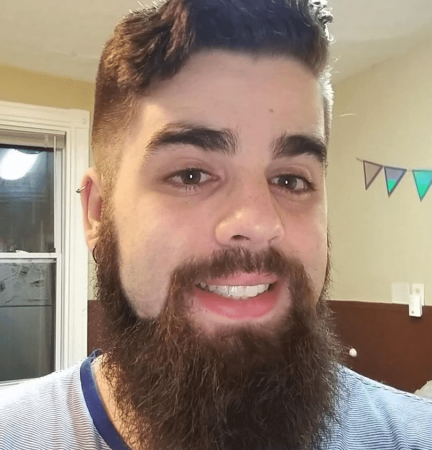Science Trends
Your source for the latest science news and education, from climate change to cancer research, we’ve got you covered
Science Trends was founded in July of 2017 as a platform to give scientists a voice to share the latest scientific discoveries. We provide an avenue for scientists in academia and industry to connect with more than half a million science-minded people. To date, we’ve worked with thousands of scientists from across the world to share their work on everything from artificial intelligence to cancer research.
Investing in science education and curiosity-driven research is investing in the future. – Ahmed Zewail
We aim that this site is your authoritative resource for answering science questions and providing simple and effective information to get you back doing what you love best. Less fluff, more substance. That’s our promise.
The Science Trends Team
Science Trends has worked with over 3,000 authors from around the globe to help you learn about the latest scientific research. We pride ourselves in our ability to present expertly crafted content from the people who know best. Below is a curated list of our science writers.
 Emily Spear, Science Editor
Emily Spear, Science Editor
Emily graduated from Truman State University in 2016 with a bachelor’s of science degree. As the editor and social media contributor for Science Trends, she works to ensure scientific writing is top notch. She has a diverse background in writing and editing pieces covering a variety of topics including news, science, sports, and travel. Emily lives in Washington, D.C. and enjoys puns, binge-watching television series on Netflix, and traveling with her husband and daughter.
 Alex Bolano, Science Writer
Alex Bolano, Science Writer
When Alex isn’t nerdily stalking the internet for science news, he enjoys tabletop RPGs and making really obscure TV references. Alex has a Masters’s degree from the University of Missouri-St. Louis.
 Daniel Nelson, Science Writer
Daniel Nelson, Science Writer
Daniel obtained his BS and is pursuing a Master’s degree in the science of Human-Computer Interaction. He hopes to work on projects which bridge the sciences and humanities. His background in education and training is diverse including education in computer science, communication theory, psychology, and philosophy. He aims to create content that educates, persuades, entertains, and inspires.
 Juan Ramos, Science Writer
Juan Ramos, Science Writer
Juan has been writing about science for over a decade and regularly keeps up with technological and scientific advancements. Juan is known for taking complex research and technology and presenting it in an easily digestible form for education. Juan holds a Master’s degree from The Open University in the UK.
 Jessica McGregor, Science Writer
Jessica McGregor, Science Writer
Jessica is currently writing her thesis to complete my Ph.D. in bioanalytical chemistry at the University of British Columbia. She plans to use her knowledge and experience in science and her writing skills to become a science writer professionally.
 M. Chloe Mulderig, Science Writer
M. Chloe Mulderig, Science Writer
After earning a Ph.D. in the anthropology of religion, I embarked on a career of traveling and writing. Through my website, www.leapoffaithchloe.com, I provide real-world tips for travelers and complex analysis of religious practice in the modern world. As a travel writer, I strive to make foreign destinations accessible to my readers, while encouraging them to gain a greater understanding of themselves through interactions with others. I supplement these writings with high-quality photography and videography.
 Kate Broome, Science Writer
Kate Broome, Science Writer
Kate is a graduate of Texas A&M University with a Bachelor’s degree and is currently working on getting her Master’s degree at Southern New Hampshire University. She loves to read and learn about all things space, a fanatic of NASA and the latest space science news. She currently lives in Texas with her two pit bulls, Lennox and Bentley.
 Kyle Foss, Science Writer
Kyle Foss, Science Writer
Kyle is a Ph.D. student in Machine Learning. His goal is to be able to hike and camp throughout the world. Prior work experience includes automotive engineering, environmental regulation, and design of experiments testing.
 Mohendra Shiwnarain, Science Writer
Mohendra Shiwnarain, Science Writer
Mohendra has a Bachelor’s degree in Biology and a Masters in Biotechnology. Growing up, he enjoyed learning as much as he could from any and all topics. He has gone on many Wikipedia rabbit holes, scouring to find more interesting facts than the last. He writes to both learn and lead others into their own search of scientific knowledge, both mundane and interesting.
Editorial Guidelines
Science Trends follows a core set of editorial and publishing policies as outlined here.Author contributions
Corrections
Editorial Independence
Institutional Affiliation
Plagiarism
Advertising Guidelines
Science Trend’s mission is to be a bridge between scientists and the general public by allowing scientists to share their knowledge, experience, and research with you. In order to do this, Science Trends relies on funding from our advertisers in order to enhance your experience at Science Trends and allow us to cover our operating costs.
Science Trends remains unbiased as advertisers and advertisements in no way compromise our editorial autonomy. Other than input about broad topic areas, we never allow sponsors to influence the content we create.
We wanted to create a policy documenting how Science Trends uses advertising, where, and with what networks. At this time, Science Trends displays Google Adsense and Outbrain advertisements. Science Trends does not have any paid links, affiliate links, or paid guest posts (branded content).
- All advertising on the Science Trends is at our discretion; Science Trends has the right to reject, cancel and remove advertising at any time.
- Science Trends does not accept advertising that is for, or contains the following:
- False, fraudulent, or misleading scientific claims, including sources that publish content not scientifically backed by peer-reviewed research.
- Material that promotes illegal activities, illegal services, or products.
- Material that promotes hatred of any form, including violence, terrorism, racism, and any other type of discrimination.
- Material that promotes the breach of intellectual property rights, such as software hacking.
- Tobacco, alcohol, pornography, adult content or products, gambling, firearms, and weapons.
- While we do display advertising on Science Trends, it does not constitute an endorsement of said advertisements.
- It is the advertiser’s responsibility to ensure that advertising complies with local, national, and international laws and regulations.
- Science Trends marks all advertisements with “advertisement” or “sponsored content.”
- For information on how Science Trends treats cookies and personal data, see our privacy policy.
If you have any questions or want any clarification on advertising on Science Trends, please visit our Contact page.
What Our Readers Say About Science Trends
Our readers love Science Trends, just read through a few of our happy reader’s comments below.
“Much more comprehensive than other articles online, relieving my curiosity about these animals. I hadn’t known about the crop damage aspect, did know about the specialized mouthparts. They frequent my bathtub twice a year; very difficult to “save” by transporting them outdoors.” – Nanaimo“This article was really helpful for understanding the functions of the medulla oblongata. Concise and simple.” – Rosh
“I’ll admit this article was quite helpful……. I now have all the important information I needed and now can complete my investigation…… thank you for the all the effort you put into this article…” – Zailie



